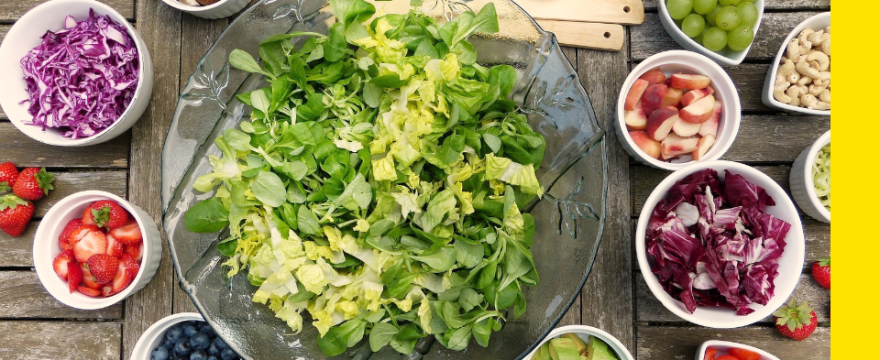If you’ve ever felt hopeless after hearing the word cancer, whether for yourself or a loved one, you’re not alone. For women who are already navigating deep emotional waters like chronic low mood, depression, or addiction, a cancer diagnosis (or even the fear of one) can feel like the final straw. But what if I told you there’s a way to reclaim your power, rooted in something as fundamental as food?
In this post, I want to share with you a powerful message of hope backed by over a decade of experience, clinical evidence, and personal transformations all centered around the nutritarian diet and cancer recovery.
What Is the Nutritarian Diet and Why Does It Matter?
A nutritarian diet is a way of eating that prioritizes nutrient-dense, plant-rich foods. Think: greens, beans, onions, mushrooms, berries, seeds, the real stuff our bodies are designed to thrive on.
For women like you, helpers, healers, and nurturers, it’s more than just food. It’s about building resilience from the inside out.
This way of eating isn’t just about prevention; it’s showing real, repeatable results in reversing the progression of certain cancers and reducing the side effects of aggressive treatments like chemotherapy.
The 3 Types of Cancer and Why Nutrition Plays a Key Role
Let’s break down cancer into 3 basic types, so we can understand how the nutritarian approach works:
Type 1: Slow-Growing, Low-Risk Cancers
Examples:
-
Ductal carcinoma in situ (early breast cancer)
-
Low-grade prostate cancer
-
Thyroid cancer
-
Basal cell carcinoma
These cancers often don’t respond to chemotherapy, because they grow slowly and aren’t dividing rapidly. But here’s the magic: they respond powerfully to nutritional interventions.
Type 2: Moderate-Growth Cancers That Affect Lifespan
Examples:
-
Estrogen-positive breast cancer
-
Some lung and colorectal cancers
-
Prostate cancers with higher Gleason scores
Chemotherapy in these cases? Often not life-extending. But again, nutrition can dramatically shift outcomes, especially when combined with hormone therapy.
Type 3: Aggressive, Fast-Growing Cancers
Examples:
-
Pancreatic, liver, or ovarian cancer
-
Triple-negative breast cancer
-
Glioblastomas
-
Hodgkin’s lymphoma
In these cases, chemotherapy might be necessary, but that doesn’t mean nutrition takes a back seat. In fact, it becomes even more important to support immune recovery, reduce recurrence, and build long-term strength.
Why Chemo Alone Isn’t Enough and How Nutrition Picks Up the Slack
Chemotherapy can kill fast-dividing cancer cells but it doesn’t always reach cancer stem cells that hide and wait. Years later, these cells can resurface, more resistant than before.
Here’s where the nutritarian diet works as a natural immunotherapy:
✅ Enhances the body’s ability to detect and destroy abnormal cells
✅ Strengthens immune defenses post-chemo
✅ Supports healing at the cellular level
✅ Reduces inflammation and oxidative stress
The Power of Strategic Fasting with Chemo
Before and after chemo, reducing caloric intake to 400–600 calories/day for a few days:
-
Protects healthy cells from chemo damage
-
Minimizes side effects
-
Improves chemo tolerance
-
Supports better outcomes
This fasting-mimicking phase is temporary, but the impact is huge.
Debunking the Keto Myth: Why a Keto Diet Isn’t Ideal for Cancer
You’ve probably heard that keto diets can “starve” cancer cells but the reality is more complex.
Here’s why traditional keto doesn’t work long-term:
High in animal protein → promotes tumor growth through amino acids like methionine
Alters gut microbiome → produces toxic byproducts like TMAO
Cancer cells can adapt to ketosis → potentially promotes metastasis
Instead, a nutritarian, plant-rich approach has been shown to:
-
Reduce methionine intake
-
Lower cancer-promoting inflammation
-
Support gut health
-
Strengthen immune response
7 Real-Life Cancer Remission Stories Using the Nutritarian Protocol
These aren’t just theories. They’re real people, many of them women, who overcame advanced cancer with this approach.
Case Highlights:
-
Stage 4 non-Hodgkin’s lymphoma → Complete remission with diet alone
-
Stage 4 melanoma → Lost 85 lbs and reversed arterial disease, no recurrence 12+ years later
-
Metastatic breast cancer (liver spread) → No recurrence 8 years post-treatment
-
Ovarian cancer with lung collapse → 25 years of cancer-free living
-
Prostate cancer (Gleason 7) → PSA normalized without surgery or radiation
-
Ulcerative colitis and testicular cancer → Full recovery, no symptoms, no meds
-
Thrombocytosis (blood cancer) → Platelet counts normalized in 9 months
Every one of these people followed the same nutritional healing protocol, and their results speak for themselves.
What This Means for You, Especially If You’re Struggling Already
If you’re already dealing with depression, emotional eating, or burnout, the idea of “changing your whole diet” might feel overwhelming.
But here’s what I want you to know:
✨ You don’t need to be perfect to begin healing.
✨ You can start small, one salad, one smoothie, one choice at a time.
✨ Your body wants to heal. You just have to give it the tools.
Whether you’re trying to prevent cancer, support a loved one going through treatment, or looking for hope after a scary diagnosis, this isn’t just a diet.
It’s a roadmap to resilience. One bite, one breath, one day at a time.
Getting Started: Your First Steps Toward Nutritional Healing
✅ Start by adding: Big salads with leafy greens, mushrooms, and seeds
✅ Swap out one meal: Try a hearty lentil soup instead of meat
✅ Add immune-boosters: Think garlic, onions, cruciferous veggies, and berries
✅ Ditch the guilt: Perfection isn’t the goal. Progress is.
Final Thoughts: You’re Not Powerless, You’re a Healer Too
You already know how to nurture others, now it’s time to nurture yourself.
The nutritarian diet and cancer aren’t just linked by science, they’re connected by stories. Stories of people who refused to give up, who took their health back one forkful at a time.
Let this be your story too.
You’re not alone. You’re not broken. And you’re not out of time.
Start where you are and trust that healing is always possible.

Leave a Reply